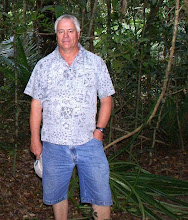 Personal comments about my profession as a plant geneticist. When I attended graduate school at the University of Minnesota from 1972-1977, the term "plant geneticist" was not as commonly used as was the term "plant breeder." Molecular genetics was at that time taught as a botany or biochemistry course. The primary training for future plant breeders interested in the genetic improvement of agronomic and horticultural crops was in quantitative or statistical genetics, rather than in molecular genetics. Professors were primarily field-oriented, rather than lab oriented. Fast forward to today, 30 years later, it is readily apparent that traditional plant breeders are becoming scarce, at least in public institutions. Most position openings today in plant genetics are for lab-oriented molecular geneticists. Those of us oriented toward quantitative genetics, who studied traits in the field, rather than in a laboratory or greenhouse, have had to adapt, at least to the point of being familiar with molecular genetics terminology, in order to remain relevant.
Personal comments about my profession as a plant geneticist. When I attended graduate school at the University of Minnesota from 1972-1977, the term "plant geneticist" was not as commonly used as was the term "plant breeder." Molecular genetics was at that time taught as a botany or biochemistry course. The primary training for future plant breeders interested in the genetic improvement of agronomic and horticultural crops was in quantitative or statistical genetics, rather than in molecular genetics. Professors were primarily field-oriented, rather than lab oriented. Fast forward to today, 30 years later, it is readily apparent that traditional plant breeders are becoming scarce, at least in public institutions. Most position openings today in plant genetics are for lab-oriented molecular geneticists. Those of us oriented toward quantitative genetics, who studied traits in the field, rather than in a laboratory or greenhouse, have had to adapt, at least to the point of being familiar with molecular genetics terminology, in order to remain relevant. Above is a pic of me working together with a molecular geneticist in Louisiana, interpreting the output from a DNA analysis (microsatellite markers) of progeny from a sugarcane cross, deciding which progeny should be planted to the field for selection purposes, and which should be discarded straight away.

No comments:
Post a Comment